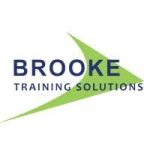When cargo arrives at a shipper, it is documented and packaged.
A carrier then transports the item to the shipper’s requested destination.
When the shipper needs more resources to search and negotiate with carriers, they often rely on freight brokers who have industry contacts and conduct research to determine the best price and fastest shipping method.
The broker will then communicate with both parties to ensure all items arrive on time and in good quality.
To assist with these duties, brokers hire freight agents who work as independent contractors.
If you want to become a freight broker in Washington, keep reading to learn more!
Go to Page Section:
Freight Broker Duties in Washington
In addition to freight brokers communicating with carriers, shippers, and vendors, they must also perform the following duties:
- Ensure loads are adequately insured.
- Find new clients.
- Handle legal documents.
- Maintain existing relationships.
- Make sure goods are loaded in the proper order.
- Manage contracts.
- Perform sales and marketing tasks.
Licensing Requirements to Become a Freight Broker in Washington
Washington doesn’t have a state freight broker licensing board, so the government relies on the federal requirements dictated by the FMCSA (Federal Motor Carrier Safety Administration), which is part of the U.S. Department of Transportation (DOT).
New freight brokers must obtain a Broker Authority license to operate in Washington.
The first step is registering your company as a business and acquiring a DOT number.
The government will then send the number with an application, which must be completed with the $300 application fee.
Also, candidates must have proof of the $75,000 surety bond and an insurance policy to protect them, their employees, and the shipping cargo.
Freight Broker Programs in Washington
Washington is a large state, with Seattle being the largest city.
However, no in-person freight training programs exist, so residents must rely on the following online programs:
Brooke Training
While Brooke is in select major cities across the United States, they do not have a location in Seattle.
Therefore, students must take their freight brokers training program online.
The Brooke Training program is regarded as one of the best in the U.S. because they offer two paths, both take five days to complete.
The basic training program covers all practical skills to create and operate a broker company.
The cost of the basic course is $2,500.
The intensive advanced course covers all basic topics and adds the power of positive thinking, personal growth, goal development, marketing, and sales.
The advanced program costs $4,000.
Freight Broker Course
The Freight Broker Course boasts several options for beginnings in the industry.
The course teaches all the necessary skills to become successful brokers and agents by managing daily business operations.
The course covers negotiations, prospecting, marketing, sales, and standard industry terminology.
The school offers a transport management system, a training portal, and various hard-copy materials.
The four courses’ pricing ranges from $124 to $774.
Load Training
Founded by David Dwindle, the Load Training program was developed to assist students in avoiding the typical pitfalls that occur within the industry.
Dwindle created the curriculum and wrote all materials for the course based on his experience.
Classes are available in five or seven-day seminars with significant discounts for those who register early.
The five-day course costs $2,000, with a self-study option for $800.
In-person classes are available in major cities but not in Seattle.
Freight Brokers Schools in Washington – Summary Table
| School Name | Address |
|---|---|
| Brooke Training | 120, 5005, 5005 Colleyville Blvd #120, Colleyville, TX 76034, United States |
| Freight Broker Course | |
| Load Training |
Salary
The median U.S. freight broker’s annual salary is $35,100, with pay ranging from $33,000 to $37,300.
The median Washington yearly salary is $37,700, with compensation ranging from $35,400 to $40,000.
Annual Salary Range:| Location | Avg. Annual Salary |
|---|---|
| Seattle | $53,047 |
| Spokane | $47,326 |
| Tacoma | $51,702 |
| Vancouver | $49,958 |
| Bellevue | $53,047 |
| Everett | $52,095 |
| Federal Way | $51,702 |
| Kent | $51,599 |
| Yakima | $48,509 |
| Bellingham | $49,413 |
Regional Salary in Washington
| Region | Employed | Avg. Annual Salary | Avg. Hourly Pay | Top 10% Annual Salary | Bottom 10% Annual Salary |
|---|---|---|---|---|---|
| Bellingham, WA | 120 | $55,070 | $26.48 | $73,040 | $46,690 |
| Seattle-Tacoma-Bellevue, WA | 1,990 | $59,660 | $28.68 | $74,690 | $46,440 |
| Spokane-Spokane Valley, WA | 50 | $56,050 | $26.95 | $77,870 | $43,670 |
* Employment conditions in your area may vary.
Frequently Asked Questions
Is a freight broker training program required for employment?
No, the State of Washington or the Federal Government does not require freight brokers to complete a freight broker program.
However, industry experts advise new freight brokers to enroll in a program to refine the skills needed for the job before entering the industry.
Also, veteran freight brokers can benefit from a training program to further sharpen their skills and learn new industry trends.
Is Washington a good place to become a freight broker?
With Seattle being the most populated city in the Evergreen State, it’s the ideal location for freight brokers to start their careers.
The high population and headquarters of companies like Microsoft and Amazon equate to a significant amount of freight distribution.
Most graduates of freight broker training programs enter Washington-based brokerage companies because they will be surrounded by experienced brokers, thus allowing them to learn from their mistakes.
Once candidates get a few years of experience, generate industry contacts, and earn considerable revenue, starting a brokerage company may be the best next step.
What considerations should I have when choosing a Washington freight broker training program?
When researching the best freight training program to meet your needs, it’s critical to consider convenience, quality, and cost.
Since nobody wants to pay several mortgage payments for a training program, spending a little more on a high-quality program will provide an excellent future return on investment.
Programs that cover financial management, surety bonds, marketing, sales, how to start and operate a business, and industry terminology will give you the knowledge required to become successful.
Most freight broker training programs take between five and 45 days to complete.
Many programs also offer a self-paced learning package.
Therefore, the self-paced option may be best for those who need the ultimate flexibility for learning and studying.
Also, some schools provide discounts for the self-learning path.
Freight Broker Info by State
- Alabama
- Alaska
- Arizona
- Arkansas
- California
- Colorado
- Connecticut
- Delaware
- Florida
- Georgia
- Hawaii
- Idaho
- Illinois
- Indiana
- Iowa
- Kansas
- Kentucky
- Louisiana
- Maine
- Maryland
- Massachusetts
- Michigan
- Minnesota
- Mississippi
- Missouri
- Montana
- Nebraska
- Nevada
- New Hampshire
- New Jersey
- New Mexico
- New York
- North Carolina
- North Dakota
- Ohio
- Oklahoma
- Oregon
- Pennsylvania
- Rhode Island
- South Carolina
- South Dakota
- Tennessee
- Texas
- Utah
- Vermont
- Virginia
- Washington
- West Virginia
- Wisconsin
- Wyoming










